IIT Delhi Executive Programme for Tech Product Management
IIT Delhi Executive Programme for Tech Product Management
Created By: Team InventModel
Requirements
Who Should Attend?
Deal for aspiring tech product managers, startup founders, early career product and marketing professionals, and managers seeking to boost their organization’s tech capabilities. Whether you're starting out or levelling up, this programme delivers valuable insights to achieve your tech industry goals.
Eligibility Criteria
Graduates or Postgraduates in Science, Engineering, Business or any related disciplines.
Admission Criteria
Selection based on application review and interview with the faculty.
Course Description
Program overview:
IIT Delhi's Executive Programme in Tech Product Management is designed to equip learners with the skills to conceptualize, develop, launch, and manage tech products effectively. This programme emphasizes strategic decision-making and collaboration with cross-functional teams in the tech industry. With a focus on experiential and hands-on learning, the course is delivered by IIT Delhi's esteemed faculty and industry experts with diverse backgrounds in technology, management, and start-ups. Ideal for graduates aiming for Tech PM roles, entrepreneurs, early career professionals, and managers, the programme builds robust tech product management capabilities for varied career paths.
Programme Timelines
|
Last Date to Apply |
30th August, 2024 |
|
Programme Start Date |
28th September, 2024 |
|
Programme End Date |
March 2025 |
Course Fee: ₹ 1,69, 000 + Taxes
Class Timings: Saturdays 10:00 a.m. to 01:30 p.m. (IST)
Duration: 5 months | Total Learning Time: 206 hours
60 hours of online LIVE sessions
100 hours of self-paced learning
40 hours of capstone project
4-6 hours of campus immersion (Optional)
Who Should Attend?
Deal for aspiring tech product managers, startup founders, early career product and marketing professionals, and managers seeking to boost their organization’s tech capabilities. Whether you're starting out or levelling up, this programme delivers valuable insights to achieve your tech industry goals.
Eligibility Criteria
Graduates or Postgraduates in Science, Engineering, Business or any related disciplines.
Admission Criteria
Selection based on application review and interview with the faculty.
Certificate and Assessment
Evaluation
40% - Assignments/quizzes
50% - Project
10% - Attendance
Certification
Candidates who score at least 60% marks overall and have a minimum attendance of 50%, will receive a ‘Certificate of Successful Completion’ from CEP, IIT Delhi.
Candidates who score less than 60% marks overall and have a minimum attendance of 50%, will receive a ‘Certificate of Participation’ from CEP, IIT Delhi.
The organising department for this programme is the Department of Management Studies, IIT Delhi.
Sample Certificate
*Only e-certificates will be issued by CEP, IIT Delhi for this programme.
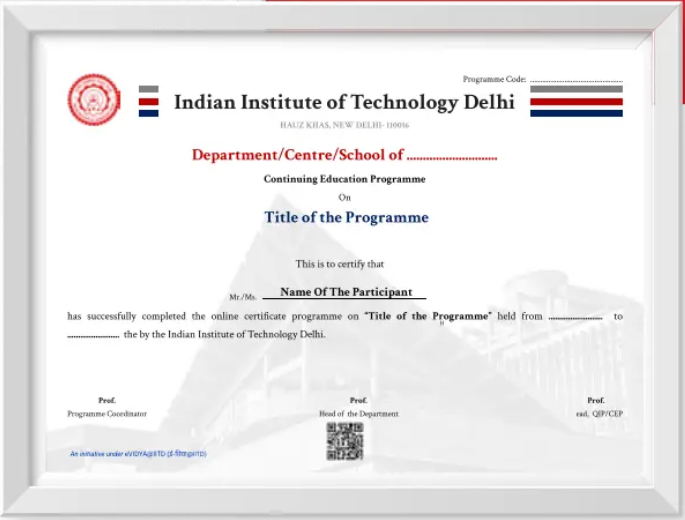
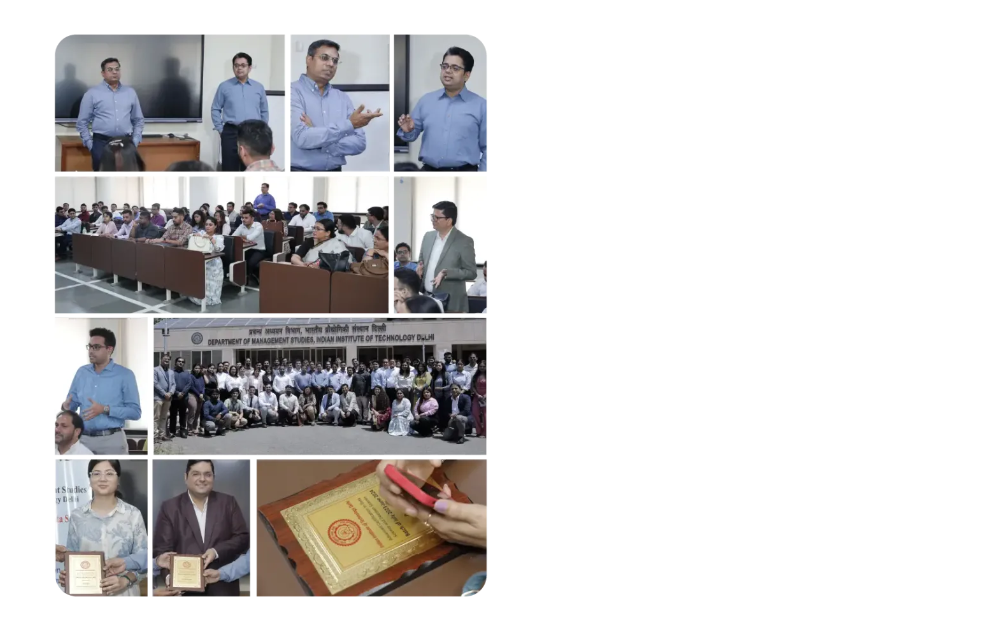
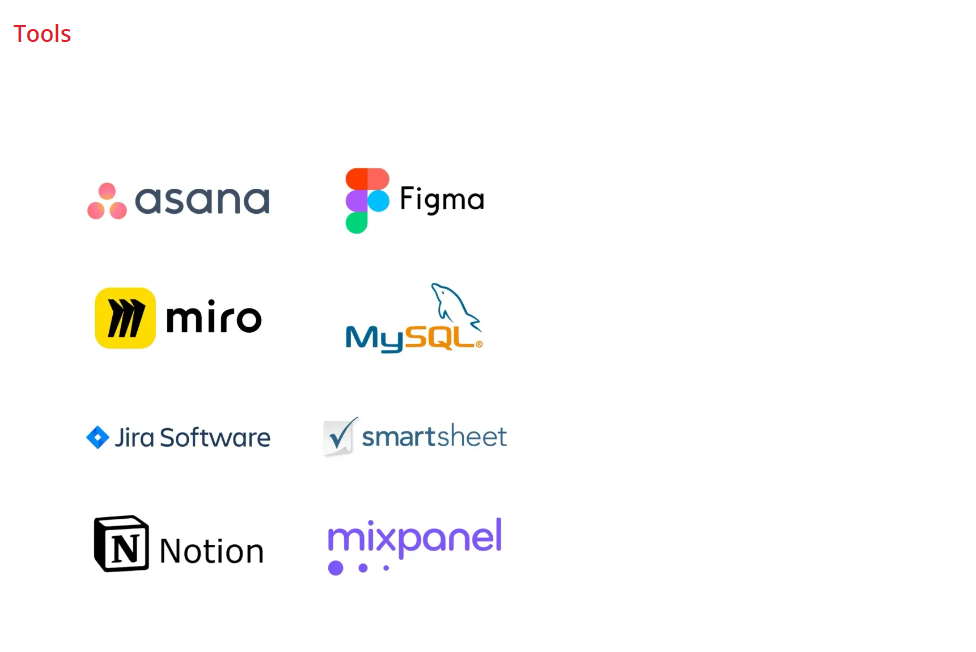
How It Works
Step1: Select course of your interest and register.
Step2: Receive Counselling from our Programme Advisors.
Step3: Get your documents verified and give an Interview if applicable.
Step4: Obtain Offer Letter and Give your Acceptance.
Step5: Pay Preliminary Course Fee.
Step6: Complete Onboarding and commence Course.
Key Highlights of Program
Training on latest industry-relevant tools
Optional one-day thorough campus immersion.
60 hours of live online lectures by esteemed IIT Delhi faculty and Industry Experts.
Engaging gamified learning methods.
Hands-on learning experience.
Unique capstone project model - Build Your Own Product (BYOP).
Application of AI in product development and management.
Networking opportunities with industry leaders.
Tech Product Management Stats at a Glance
The surge reflects industry’s recognition of the pivotal role these professionals play in product development and innovation. As the digital landscape continues to evolve, the Executive Programme for Tech Product Management offered by IIT Delhi stands as a beacon for professionals seeking to thrive in the dynamic world of tech product management. The statistics presented here tell a compelling story of success, growth, and the programme’ s ability to empower individuals to become strategic leaders in the tech industry.
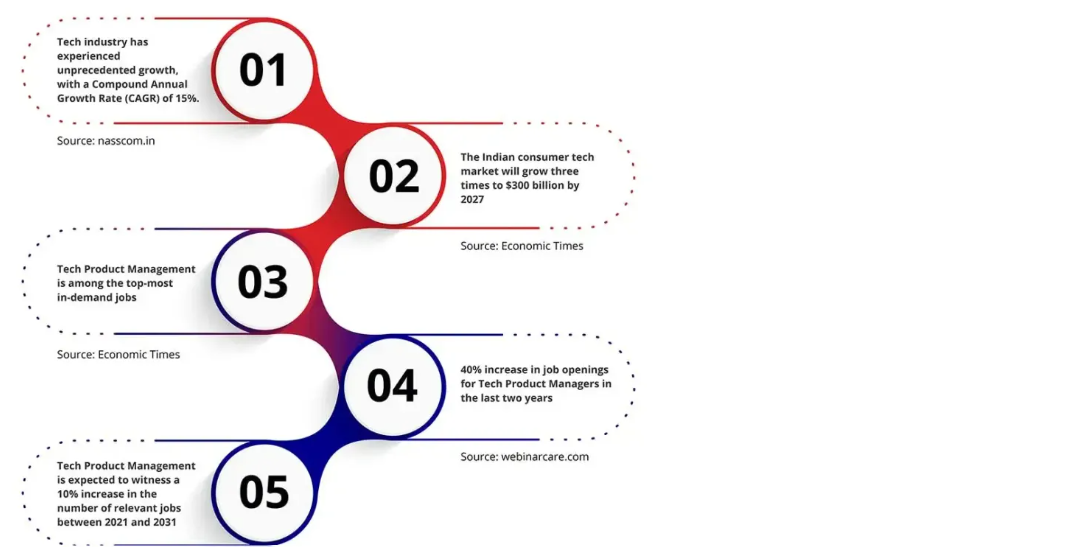
Key Learning Outcomes
Understand the core principles, methodologies, and best practices of tech product management.
Develop tech product strategies and roadmaps that align with business goals, market trends, and user needs.
Effectively manage tech product design, development, staging, production, and deployment cycles.
Learn feature discovery, feature need analysis, and validate through data captured via web analytics tools.
Learn tech product marketing – how to market your product and its features
Learn how to do efficient business review.
Pedagogy
The programme will be offered through a unique blend of diverse pedagogical tools such as lectures, tutorials, hands-on tools, and projects.
Programme Delivery
Online Direct-to-Device (D2D)
Campus Immersion
An offline 1-day campus immersion for interaction between faculty and learners in IIT Delhi campus (optional for learners to attend).
Job Roles
Below are the job roles available in this field -
Technical Product Manager: A Technical Product Manager (TPM) oversees the development and delivery of technical products, ensuring they meet market needs and business goals. They bridge the gap between engineering and product teams, translating technical capabilities into user-friendly features. TPMs often have a strong technical background and work closely with engineers to prioritise features, manage the product lifecycle, and solve technical challenges.
Product Marketer: A Product Marketer is responsible for developing and executing marketing strategies to promote a product. They understand the target audience, create compelling messaging, and coordinate with sales teams to drive product adoption and growth. Product Marketers analyse market trends, conduct competitive analysis, and use customer insights to position the product effectively in the market.
Business Analyst: A Business Analyst (BA) analyses business processes, systems, and data to help organisations improve efficiency and achieve strategic goals. They gather requirements, create documentation, and work with stakeholders to identify needs and solutions. BAs often facilitate communication between business units and technical teams, ensuring that solutions align with business objectives.
Product Analytics Manager: A Product Analytics Manager oversees the collection and analysis of data related to product performance and user behaviour. They provide insights that inform product development and strategy, helping teams understand how users interact with the product. This role involves using various analytical tools and techniques to track key performance indicators (KPIs) and support data-driven decision-making.
Product Owner: A Product Owner is responsible for defining the vision and direction of a product, managing the product backlog, and ensuring the development team delivers value to customers. They work closely with stakeholders to prioritise features and make decisions about product scope and functionality. Product Owners are pivotal in agile development environments, ensuring that the team stays focused on delivering high-priority items that align with business goals.
Course Content:
Module 1: Introduction to Tech Product Management
What are digital products and tech products?
Various industries in which these are used – IoT, apps, product, and service
Platform – layers of product
What is a product?
Product management – Skills required, hierarchy, and job description
Types of PM across industry
Learning outcomes:
Understand career landscape from a Tech Product Management perspective.
Module 2: Product Ideation
Pain point -> Reason -> Need -> Solution -> Benefit
How to arrive at product from solution (Miro)
Market map
Market sizing
SWOT
Learning outcomes:
Understand framework and approaches when building a new product.
Module 3: Product Strategy
Product lines and product portfolio
Entry strategy – TG
Form of delivery
What else you need to aid the product differentiation/USP – differentiated features, better pricing, efficient way of doing the same/routine things
Defining success metrics (KPIs)
Learning outcomes:
Understanding stakeholders’ needs/wants to suit different forms of delivery.
To develop a connected ecosystem of tech products to power the entire business.
To define high level features of tech products.
Module 4: Product Roadmap
Phases of the product – Minimum Viable Product (MVP) and beyond
Quick and dirty iterations or more matured Minimum Marketable Product (MMP)
Writing user stories
Coming up with style guide for your product (Figma)
Learning outcomes:
To understand prioritization, planning, sequencing, resource allocation/requirements, build timelines, cost-benefit analysis.
Module 5: Product Design and Discovery
Doing the UX research
UX designs (wireframes)
UI design
Learning outcomes:
Understand visual aspects, front-end of tech products.
Module 6: Product Development
Creating technical tasks (Eng. manager)
Writing test cases
Execution – Agile method; Scrum/Kanban process (JIRA, Asana).
Development environments – Development, staging, production, build, quality assessment, and release
Integrating third-party applications
Reading API documentation
Learning outcomes:
Understand development, execution, timeline adherence, sprint management, team management, and fixing delays.
To understand tech development and deployment pipeline, and processes.
Module 7: Prescriptive Decision Science
Marketing automation tools – Web Engage
Learning outcomes:
Understand how to promote and market tech products, customer engagement, branding, positioning.
Module 8: Capturing Data
Defining what user data, we need to capture
Web analytics setup and usage
Tools – Google Analytics, Mix panel, etc.
Learning outcomes:
Decide what types of data must be captured and know which web analytics tools can be used for the same purpose.
Module 9: Product Analytics
Using the database to fetch the desired data and doing analysis (SQL)
Learning outcomes:
Analyse the captured data
Module 10: Product Tracking
Reporting the success KPIs and other input/output KPIs; lead/lag KPIs
Learning outcomes:
Gauge product performances, alignment with business goals
Module 11: Product Staging
How to evaluate the product market fit?
Pivoting the product/business
Learning Outcome
Understand product revamp
Module 12: Advanced Features
Recommendation for cross-selling/up-selling
Search bar recommendation
Chatbot efficiency building
Learning Outcome
Understand how to bring efficiency and data intelligence to optimise product performance.
Module 13: Peripheral Products in Any Organization
Operations automation
Customer grievances redressal system automation
Digital platforms/apps business review
Learning Outcome:
Understand non-core functions to support tech product operation, building product approaches to support functions around core offering.
Capstone Projects
Bring Your Own Product (BYOP)
Learning Outcome:
To apply the in-class learning in real world, to solve associated problems and address challenges while building a tech product from scratch.
Projects, Assignments, and Case Studies
Google, Amazon, Meta, Netflix, Microsoft and more case studies.
Identification of
Interesting contemporary organisations/new-age start-ups offering digital/software product(s)/platform(s).
Competition analysis for its flagship product/platform/product of choice in their portfolio.
Feature update/addition/modification.
Version update and product extension by considering user feedback/pain points and presentation of the feasibility of the suggested improvement, and business viability.
Dates and Fees
Programme Fee
|
Particulars |
Amount (in ₹) |
|
Programme Fee |
1,69,000 |
|
GST @18% |
30,420 |
|
Total Fee |
1,99,420 |
Note:
All fees should be submitted in the IITD CEP Account only, and the details will be shared post-selection.
Withdrawal & Refund from Programme
Candidates can withdraw within 15 days from the programme start date. A total of 80% of the total fee received will be refunded. However, the applicable tax amount paid will not be refunded on the paid amount.
Candidates withdrawing after 15 days from the start of the programme session will not be eligible for any refund.
If you wish to withdraw from the programme, you must email cepaccounts@admin.iitd.ac.in and icare@timespro.com stating your intent to withdraw. The refund, if applicable, will be processed within 30 working days from the date of receiving the withdrawal request.
Instalment Schedule
Instalment
|
Particulars |
|
Amount (₹)** |
|
Registration Fee |
To be paid at the time of registration |
10,000 |
|
1st Instalment |
Within one-week of offer-rollout |
59,000 |
|
2nd Instalment |
12th November, 2024 |
50,000 |
|
3rd Instalment |
27th December, 2024 |
50,000 |
** GST @18% will be charged extra in addition to the fee.
Easy EMI Options Available
Note:
Registration Fee of ₹10,000 will be charged for processing the selected applications only, post confirmation email from the institute. The registration fee is also part of the total programme fee.
An offer letter from CEP, IIT Delhi will be released post the successful receipt of the Registration Fee.
Payment of fees should be submitted in the IIT Delhi CEP account only and the receipt will be issued by the IIT Delhi CEP account for your records.
Loan and EMI Options are services offered by TimesPro. IIT Delhi is not responsible for the same.
Frequently Asked Questions (FAQs)
What are the key objectives of the IIT Delhi Executive Programme for Tech Product Management?
The key objective of IIT Delhi's Executive Programme for Tech Product Management is to enable learners to become proficient tech product managers who can successfully conceptualize, develop, launch, and manage tech products. The programme covers various topics such as product strategy, roadmap planning, user experience design, agile product development, data analytics, and market research. This programme will equip learners with the skills and insights to make strategic decisions and collaborate effectively with cross-functional teams in the tech product space.
What is the duration of the programme?
The duration of this IIT Delhi Executive Programme for Tech Product Management programme is 5 months.
What are the eligibility criteria for the IIT Delhi Executive Programme for Tech Product Management?
Any graduates and diploma holders, preferably with Internship/Project/Work Experience, are eligible for this IIT Delhi Technical Product Management course.
What is the curriculum and pedagogy of the IIT Delhi Executive Programme for Tech Product Management?
The curriculum of the IIT Delhi executive programme for Tech Product management includes Introduction to Tech Product Management, Product Ideation, Product Strategy, Product Roadmap, Product Design and Discovery, Product Development, Product Marketing, Product Analytics and Product Tracking, Product Staging, Advanced Features and Peripheral Products in Any Organization pedagogy comprises of class with theory and practical applications, case studies, examples, and hands-on experience.
How can I apply for the IIT Delhi Executive Programme for Tech Product Management?
Anyone looking to apply for this programme can click the ‘Enrol Now’ button and fill in your Full Name, Phone number, email id and city. Click submit. You will receive a call from our programme advisors for detailed instructions. In case the admissions are closed or to be announced, kindly fill in the Enquiry Form by clicking the ‘Enquire Now’ button, and you will get a call from our programme advisors to brief you further.
What are the career prospects after completing the programme?
The IIT Delhi Executive Programme for Tech Product Management is an advanced course designed for professionals seeking to develop and manage technology products effectively. Upon completion of this programme, graduates can explore various career prospects in the tech industry, which includes:
Product Manager
Technical Product Manager
UX/UI Designer
Data Analyst
Digital Marketer
Business Analyst
Project Manager
By pursuing these career paths, learners can make significant contributions to the development and success of technology products and companies.
Reference taken from:
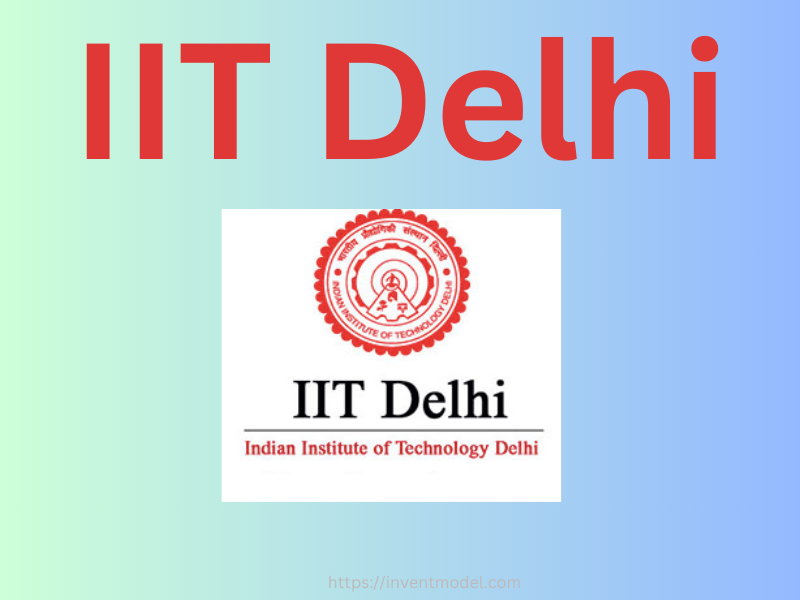
00 Minutes On Demand Video
Full lifetime access
Access on mobile and TV